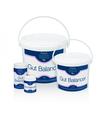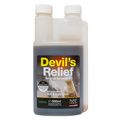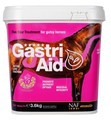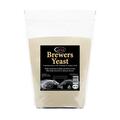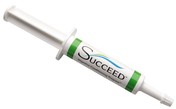Good digestive health is essential to your horse's overall wellness and performance. The horse's gut is populated by billions of beneficial or "good" bacteria and protozoa - particularly in the colon and caecum of the hindgut. These organisms ferment the fibre (grass, hay etc) that horses eat. A key product of fermentation in the hindgut is volatile fatty acids (VFA's) that are absorbed into the bloodstream and provide an important source of energy for the horse. Horses on a complete forage diet get up to 70% of their energy from these VFA's.
In addition to producing many of the vitamins, amino acids and other nutrients the horse needs, the intestinal flora help keep potentially damaging bacteria, such as Salmonella and E coli, under control. They do this in several ways, including colonising the gut wall; by attaching themselves to the epithelium, they block spaces that might otherwise be occupied by bad bacteria. 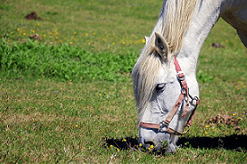 Some of the bacteria also produce lactic acid, which maintains the gut environment within a narrow zone of acidity that is comfortable for the beneficial bacteria but hostile to the pathogenic ones.
Some of the bacteria also produce lactic acid, which maintains the gut environment within a narrow zone of acidity that is comfortable for the beneficial bacteria but hostile to the pathogenic ones.
The balance of microflora within the gut is very delicate and can be adversely affected by a number of things such as stress, sudden changes in diet, treatment with antibiotics and illness. Disruption to the microflora can lead to inefficient digestion, performance issues such as lethargy, diarrhoea and colic.
Probiotics such as Protexin Gut-Balancer help to re-establish the right balance of organisms in the gut and promote optimal pH. Many seemingly healthy horses can also benefit from probiotic supplementation to promote more efficient digestion, boost the immune system and increase overall wellness and vitality.
Whilst it is important to maintain good digestive health in the hindgut, the stomach of the horse should not be overlooked. Many horses, from happy hackers to performance horses, are also prone to gastric ulcers. Equine gastric ulcers are caused by prolonged exposure to acid produced by the stomach eroding the stomach lining.
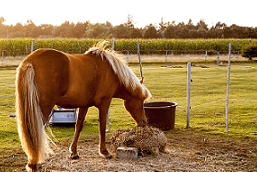 Once gastric ulcers are diagnosed the best treatment is a course of Omeprazole (GastroGuard, Peptizole, UlcerGold etc) usually for 28 days followed by long-term use of a gastric supplement. These supplements act as buffers to mimic saliva raising the pH and protecting the stomach lining from aggressive acids, promoting secretion of protective mucus, stabilising and regenerating the gastric mucosa and preventing an excess of gastric acid in the stomach.
Once gastric ulcers are diagnosed the best treatment is a course of Omeprazole (GastroGuard, Peptizole, UlcerGold etc) usually for 28 days followed by long-term use of a gastric supplement. These supplements act as buffers to mimic saliva raising the pH and protecting the stomach lining from aggressive acids, promoting secretion of protective mucus, stabilising and regenerating the gastric mucosa and preventing an excess of gastric acid in the stomach.
Many horse owners use a combination of probiotics and gastric supplements effectively to maintain optimal digestive health in their horses.
Written by: Dr. Sophie Meers BVSc MRCVS

